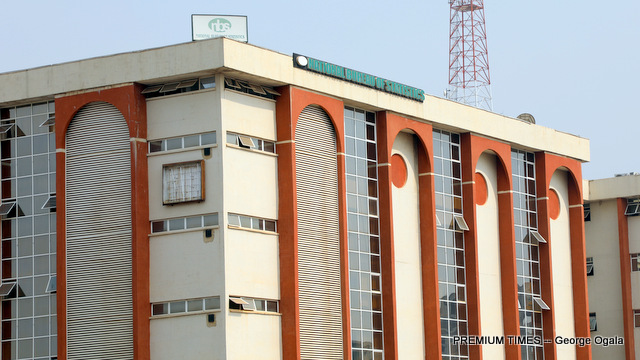
The National Bureau of Statistics (NBC) has recently disclosed that the the decision to reopen Nigeria’s borders to trade had failed to, immediately, arrest the inflation and relentless climb in the cost of living as a massive inflation rose to 15.75 per cent in December, its highest level in 32 months.
With the hike in the cost of living as evident in the figures posted by the NBC,
Inflation touched 14.89 per cent in November, with the 0.86 per cent month-on-month increase in December figure marking the 16th consecutive month inflation would increase in Nigeria.
This stat automatically means that the recovery process will be complicated for Nigeria one of Africa’s largest economy, who had unfortunately witnessed its second recession in four years and the worst in nearly forty years in the third quarter of 2020, after recording two contractions in a row.
Its negative effects is that this will heap more pressure on cost of living and disposable income, while weakening consumer spending.
“Rising Inflation rate is a serious consumer pressure point, and reduces consumer purchasing power over time,” Samuel Bamidele, a Lagos-based financial research analyst told PREMIUM TIMES.
“Inflation rate at 15.75% in December 2020 is obviously not good for the economy, and particularly in an economy characterised by single-digit interest rate on investment,” he added.
It is important to state that this present administration has been battling inflationary pressures which has still not abated since the announced a shutdown of Nigeria’s porous land borders with all neighbours in October 2019 in a bid to improve production of food as well as curb smuggling and associated corruption.
However, the above problems, coupled with banditry attacks on farms and deluge of rain submerging paddy fields in northern Nigeria, a region largely known for low rainfall, has been accelerating food costs.
“The reopening of land borders is expected to ease food inflation rate, however, the impact on prices may not happen immediately, perhaps in the next 3-6 months before any possible impact will suffice.
“If food inflation responds quickly to the opening borders, then we may start witnessing some easing,” Mr Bamidele said.
Statistics office, revealed that the composite food index increased by 19.56 per cent in December, relative to the 18.30 per cent of the preceding month.
“This rise in the food index was caused by increases in prices of bread and cereals, potatoes, yam and other tubers, meat, fruits, vegetable, fish and oils and fats,” the NBS added.
Meanwhile, the Minister of Finance, Budget and National Planning, Zainab Ahmed, has disclosed recently that government planned to keep inflation at 11.95 per cent by year end, following the Central Bank of Nigeria (CBN)’s inability to keep it within a single-digit target range of between 6 to 9 per cent for more than four years.
The December figure surpassed the forecast of market intelligence firm Financial Derivatives, which projected a 15.4 per cent inflation rate for December.
“The continued rise in the general price level is driven largely by forex rationing, output and productivity constraints, higher logistics and distribution costs,” Financial Derivatives said in a note.
“In December 2020, all items inflation on year-on-year basis was highest in Bauchi (19.85%), Edo (18.15%) and Kogi (18.40%), while Lagos (14.05%), Kwara (13.91%) and Abia (13.30%) recorded the slowest rise in headline year on year inflation,” the NBS said.
Recalled that electricity tariffs in Nigeria had earlier risen by 50 per cent, following the introduction of a new Multi Year Tariff Order, an action, which coincidentally, met with increase in fuel pump prices. This further aggravated the cost of living and a backlash from the populace forced government to halt its enforcement.
However, in a new twist of events, the minister of power, Sale Mamman, has disclosed that government would now have a dialogue with labour to arrive at a common ground which would be mutually beneficial to all parties by the end of January.
Conclusively Mr Bamidele in his expert opinion has said that;
“On headline inflation, the Central Bank may raise MPR perhaps in Q2 2020 just to mop up some excess liquidity in the system, and this is also expected to have the inflation down trending impact.”
Moreso, the latest figures will form part of deliberations at the next CBN monetary policy committee meeting which is coming up very soon.
Gift Joseph Okpakorese
Staff Writer







